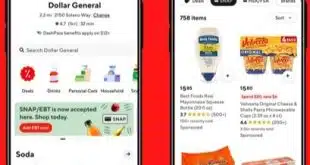A new mobile-payments service that includes loyalty and rewards has launched with the goal of providing retailers with a single source of mobile engagement with their consumers.
Dubbed OmnyPay, the service is just one of the many announcements made this week at the annual Money 20/20 conference in Las Vegas.
San Francisco-based OmnyPay says its technology works with iOS and Android smart phones and that it supports multiple payment methods, including credit and debit card, private-label cards, store cards and automated clearing house payments. Merchants can brand the service with their own logos. OmnyPay is focusing on large merchants.
To use OmnyPay, consumers look for a Quick Response code near the point-of-sale stations at participating merchants. Upon checkout, the consumer opens the retailer's app and scans the code within it. This alerts the OmnyPay system which store the consumer is in and which POS terminal they are using.
As the salesperson rings up the merchandise, the consumer authenticates herself—using a biometric-like a fingerprint if the phone supports it—as the retailer’s system connects to OmnyPay’s network. There, the transaction is matched with the consumer’s profile to determine if any discounts or coupons can be applied. The system also can present in-app offers while the checkout is ongoing, says Ashok Narasimhan, OmnyPay co-founder and chief executive.
Other OmnyPay founders include Mohammad Khan, former ViVOtech founder, as chief technology officer, and Bill Melton, who started VeriFone Systems Inc., as chief strategy officer.
By combining loyalty, rewards, and payments, OmnyPay will stand out among other mobile-payments competitors, Narasimhan says. OmnyPay also works with store cards and enables merchants to steer consumers to preferred payment methods, such as a store card or debit card, he says. OmnyPay is more than a wallet that stores some offers, he says.
Consumers also can use OmnyPay on retailer’s e-commerce sites. They do this by selecting the store-branded OmnyPay option, or whatever the store may brand it, upon checkout. The consumer opens the retailer's mobile app to scan the QR code presented on the screen. The transaction connects to the merchant's database to automatically apply any discounts or rewards. There is no need to fill in a card number or addresses, Narasimhan says, because the OmnyPay system does it. The consumer presses the pay button on the smart phone to complete the transaction.
OmnyPay requires a network connection to the merchant’s point-of-sale system, and loyalty and offer data pushed to its network. Available now, the service takes between eight weeks and 12 weeks to build and test. Retailers either supply the app or they can modify a template provided by OmnyPay.
In other Money 20/20 news, independent sales organization Total Merchant Services Inc. announced it is selling the Groovv Terminal One, a POS terminal available for purchase in Apple Inc.’s online store. The device, which is rebranded, sells for $99, but includes a $99 statement credit.
In addition to magnetic-stripe and EMV transactions, the terminal also accepts near-field communications (NFC) transactions like Apple Pay. As an incentive for merchants to promote Apple Pay use, TMS is offering $20,000 free in transaction fee processing for the first year on Apple Pay transactions.
“This opens a new channel for us,” Zavida Mangaru, TMS head of product, tells Digital Transactions News. The Apple store availability is another sales channel for Woodland Hills, Calif.-based TMS, she says.
In addition to selling the device, Apple also provided TMS with some guidance on the packaging, to ensure the out-of-box experience was aligned with Apple’s approach, Mangaru says. Most merchants will be able to unpack the terminal and begin processing some transactions immediately, with a full underwriting process to enable more and higher-value transactions that takes place within 24 hours.




